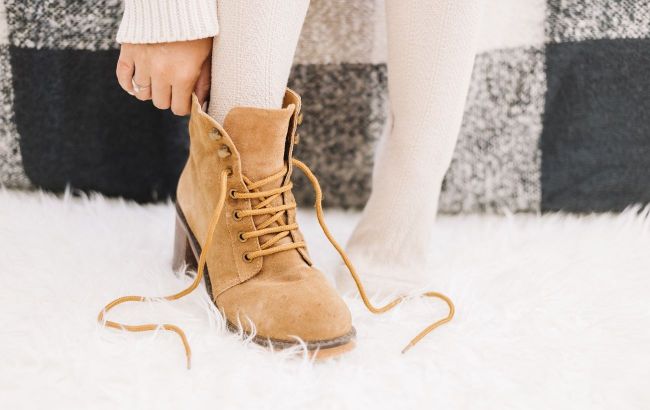Don't walk in your shoes at home: 5 shocking reasons why
 Why it’s better not to wear shoes inside the house (Photo: Freepik)
Why it’s better not to wear shoes inside the house (Photo: Freepik)
Some of us have a strict no shoes in the house rule, while others are more relaxed - especially when guests arrive or if you just need to run in quickly to grab something.
Womenshealthmag explains why shoes should be left at the door.
Why you should leave shoes at the door
Dirt accumulates even if you can’t see it
First, your shoes track in debris from outside, whether you notice it or not. Invisible dirt can mix with carpets and hard floors, remaining unnoticed until it builds up significantly. Even if there’s very little visible dirt, traces will remain—particularly on carpets, which essentially scrape dirt off your soles and trap it in the fibers.
According to Dr. Primrose Freestone, a microbiologist at the University of Leicester, “Shoe soles might look clean, but looks can be deceiving.”
Outdoor shoes can bring bacteria, fungi, viruses, animal feces, allergens such as pollen, and toxic chemicals like pesticides into your home - substances that can be linked to serious health problems.
Research has shown that carpet fibers can trap a wide range of contaminants brought in on shoes, including allergens, fecal matter, pollen, bacteria, viruses, mold, dirt, and dust. These pollutants can become airborne when vacuuming or even simply walking on the carpet, which can pose problems for people with respiratory conditions such as asthma.
Fristoun recommends regular vacuuming to remove pollen, fecal matter, and some fungal spores, along with everyday dirt and dust. However, carpets may also require steam cleaning or specialized detergents for a deeper clean.
Heels can also damage surfaces
Even if your shoes appear spotless, their type can still cause harm. High heels, in particular, concentrate a lot of weight on a single point, which can scratch your floors. Shoes with spikes or metal studs on the soles, such as golf or football shoes, can also leave marks.
Shoes can spread unpleasant odors
Beyond tracking in extra dirt, wearing shoes indoors can spread unwanted smells throughout the home, depending on what you accidentally step in. Most commonly, this is animal feces, but other odors, such as waste or garbage liquids, can also be carried inside.
If you enter your home with wet shoes, you not only bring in dirt but also spread moisture across carpets and hard floors. This significantly increases the risk of stains and promotes mold growth on carpets.
Can carry pests and viruses
Shoes can bring more into the home than we might realize. Some pest eggs can travel on the soles and enter our homes unnoticed, including carpet moths and worms.
According to Adam Hart, a Professor of Science Communication at the University of Gloucestershire and a member of the Royal Entomological Society:
"Shoes are definitely a way for potential problems to enter our home. Small bits of soil (and worse...) can harbour the eggs or larvae of all kinds of creatures as well as bacteria and fungi. Most of the time it probably isn't a big problem but it still makes sense not to wear outside shoes inside the house."
Depending on what we step in, viral infections can also be transported. And if you have young children playing on the floor who tend to put their hands in their mouths, infection can occur very easily.
"Bacteria capable of causing infection found on shoes includes Listeria monocytogenes, methicillin-resistant Staphylococcus aureus (MRSA), Enterococcus faecalis, Clostridium difficile, Escherichia coli, and viruses such as Covid-19, norovirus and whatever pathogen was in the trace of dog or bird faeces you did not see when you walked in it. Touching the shoe that carries these pathogens could lead to infection if hands are not washed after the shoe contact," the expert added.
Small stones can damage hard floors
Have you ever looked at the soles of your shoes and noticed small stones stuck in the grooves? We pick them up while walking outside and then bring them into the house. Later, they can fall out and move freely across the floor when we vacuum or mop. Even if they remain trapped in the shoe, they can still cause scratches as we walk.
Always use a doormat at the entrance to help remove small stones and debris. Visually check your shoes before entering - this is a good practice in case you’ve stepped on chewing gum or dog droppings.
This material is for informational purposes only and should not be used for medical diagnosis or self-treatment. Our goal is to provide readers with accurate information about symptoms, causes, and methods of detecting diseases. RBС-Ukraine is not responsible for any diagnoses that readers may make based on materials from the resource. We do not recommend self-treatment and advise consulting a doctor in case of any health concerns.

